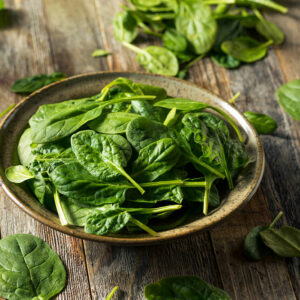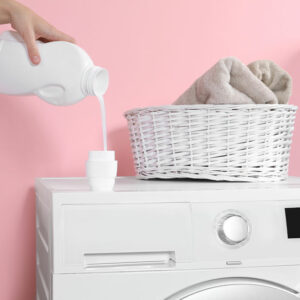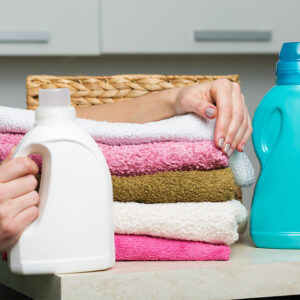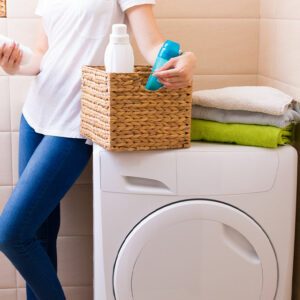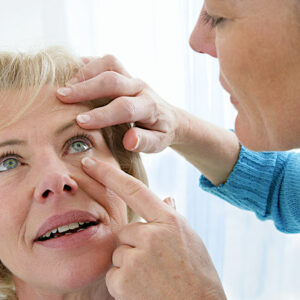14 household products that may increase cancer risk

The International Agency For Research On Cancer (IARC) is responsible for collecting and publishing cancer statistics worldwide, and they have released a list of daily-use carcinogenic substances and activities that lead to an increased risk of cancer. The term carcinogenic describes a substance’s potential to cause cancer. To ensure you’re not using such products and avoid all types of household carcinogenic, here are 14 items and daily activities that may increase the risk of cancer:
Arsenic in drinking water
Arsenic is a highly toxic chemical that is used in the manufacturing process. Improper treatment of production waste can lead to arsenic dumping in rivers and lakes. This can seep into the groundwater, find its way into our homes, and increase the risk of liver, lung, kidney, and bladder cancer. If you live in an area where this is a concern, consider investing in a reverse osmosis (RO) filter to remove arsenic from drinking water.
Chimney sweeping
Chimney sweeping is the old practice of cleaning the dust and soot out of the chimneys. This process is now mechanized and does not require human intervention. However, inhalation or accidental ingestion of coal or wood fumes and residue raised the risk of a special form of cancer, now known as ‘chimney sweep cancer’.
Areca nut
Areca nut is a mild stimulant that is commonly consumed with betel leaf in some traditional households. This nut has been known to increase the risk of mouth and esophageal cancer.
Sunlamps and sunbeds
Whether it’s for light therapy or to get the perfect tan, tanning beds have been growing in popularity across the country. However, these beds emit ultraviolet radiation to help achieve a cosmetic tan. Overexposure to ultraviolet rays can increase the risk of cataracts, premature skin aging, and skin cancer.
Processed meats and fish
Salted or pickled fish contains high levels of nitrites and nitrates as preservatives. Excessive consumption of these foods has been linked to an increased risk of nasopharyngeal (upper throat) cancer. Nitrates and nitrites are also used in the preservation process for many processed meats, including bacon, salami, pepperoni, and sausages. To prevent the risk of cancer, limit your consumption of salted, fermented, cured, or smoked foods.
Polychlorinated biphenyls (PCBs)
PCBs are synthetic compounds that were commonly used in electrical equipment as coolants or lubricants in the past. Although they were banned in the 1970s, many old devices continue to remain in circulation, such as refrigerators, transformers, capacitors, and televisions. Exposure to these chemicals can increase the risk of melanomas, liver, gallbladder, biliary tract, gastrointestinal tract, and brain cancer. If you have old appliances and fluorescent light fixtures in your home, switch them out for new, health regulations-compliant technology.
Mineral oils
Untreated or mildly treated mineral oils are severely carcinogenic for humans. Examples of mineral oils include liquid paraffin, petrolatum, microcrystalline wax, ozokerite, ceresin isoparaffin, paraffin, and synthetic wax. Since they are known to have hydrating properties, they are commonly added to several cosmetic products, such as nail polishes, face creams, body creams, liquid makeup, and foundation.
Asbestos
Asbestos is commonly found in building materials (such as roof shingles and ceiling and floor tiles), friction products such as automobile clutch, brake, and transmission parts, and heat-resistant fabrics, packaging, gaskets, and coating. When asbestos particles break down and are inhaled, they can get lodged in the lungs, and increase the risk of cancer. If your job requires you to be in contact with asbestos, make sure you use the right protective gear. If you are worried about asbestos leaks in your home, call a professional and have it checked and removed immediately.
Crispy, brown foods
When some vegetables (such as potatoes) are heated to higher temperatures, they can emit acrylamide. Some studies have shown that acrylamide has been associated with a higher risk of cancer among rats and is likely to affect humans similarly. Instead of cooking (baking, roasting, frying, or toasting) foods until they are golden or deep brown, try to stop the cooking process when they turn tan.
Formaldehyde
The chemical formaldehyde is added to many household products, such as building and insulation materials, glues, permanent press fabrics, paints, coatings, lacquers, finishes, paper products, cosmetics, dishwashing liquids, fabric softeners, fertilizers, and pesticides. Regular exposure to these products can increase the risk of cancer significantly. Opt for formaldehyde-free formulae, or air out your house every day and keep humidity levels low using an air conditioner or dehumidifier.
Engine exhaust
Several vehicles today operate on diesel fuel. These engines are known to emit exhaust that can increase the risk of lung and other types of cancer. Try to avoid spending time around diesel vehicles when possible. For people who work with these vehicles, it is imperative to use the right safety equipment.
TDCIPP
Tris(1,3-dichloro-2-propyl)phosphate (TDCIPP) is a flame-retardant that is commonly used in several household products, such as sofas, mattresses, and other cushioned furniture. This carcinogenic substance is so pervasive in our homes that it is one of the ten most frequently occurring chemicals in household dust. The National Resources Defence Council recommends replacing any furniture purchased before 2013, and checking labels carefully when purchasing furniture.
Chromium
Chromium is another common chemical in our homes. It is used to make tanned leather, wood furniture, textile dyes and pigments, and cement. When making a purchase involving any of these materials, be sure to speak to the salesperson and look for chromium-free options.
Dioxin
This chemical byproduct is found in dust, dirt, and even vegetable residue. It makes its way into our bodies by entering the soil and water supplies, increasing the risk of cancer. When working in the garden, be sure to wear gloves and wash off all dirt before heading into your home to reduce your exposure to this chemical. Additionally, avoid burning any trash in the backyard.

